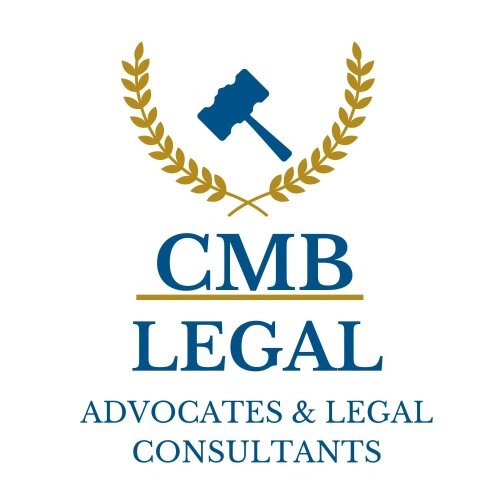Best Mortgage Lawyers in India
Share your needs with us, get contacted by law firms.
Free. Takes 2 min.
Free Guide to Hiring a Real Estate Lawyer
Or refine your search by selecting a city:
List of the best lawyers in India
About Mortgage Law in India
Mortgage law in India forms a critical part of property and real estate transactions. A mortgage refers to a transfer of an interest in immovable property to secure the repayment of a loan or the performance of an obligation. Governed primarily by the Transfer of Property Act, 1882, and complemented by other laws like the Indian Contract Act, 1872, and the SARFAESI Act, 2002, mortgage laws provide a legal framework for the creation, enforcement, and termination of mortgages. The legal landscape is designed to protect both the lender's and the borrower's interests, balancing access to credit with property rights security.
Why You May Need a Lawyer
Engaging a qualified lawyer can be crucial in various situations relating to mortgages:
- Mismatched Mortgage Conditions: If there are discrepancies in the mortgage agreements, a lawyer can help resolve these issues.
- Foreclosure: Legal assistance can be crucial for borrowers facing or contesting foreclosure to protect their rights.
- Dispute Resolution: A lawyer can mediate or represent clients in disputes between lenders and borrowers.
- Documentation: Proper drafting and evaluation of mortgage deeds and related documents to prevent future complications.
- Legal Compliance: Ensuring that all transactions comply with relevant property and financial regulations.
- Fraud Prevention: Identifying and preventing fraudulent transactions in mortgage agreements.
Local Laws Overview
Several key aspects of Indian local laws are pertinent to mortgages:
- Types of Mortgages: There are different types of mortgages such as simple mortgage, usufructuary mortgage, English mortgage, and mortgage by deposit of title deeds, each with its own legal provisions.
- Transfer of Property Act, 1882: This is the primary act governing mortgage transactions, outlining the rights and responsibilities of both parties.
- SARFAESI Act, 2002: Facilitates secured creditors to take possession of assets for recovery of debt without court intervention.
- Stamp Duty and Registration: Every mortgage deed must be properly stamped and registered under the Indian Registration Act, 1908, to be legally enforceable.
- Recovery of Debts: Governed by the Recovery of Debts Due to Banks and Financial Institutions Act, 1993.
Frequently Asked Questions
What is the difference between a mortgage and a simple loan?
A mortgage involves securing a loan against immovable property, whereas a simple loan doesn't necessarily require collateral.
What happens to the property title during a mortgage?
In a mortgage, property title may remain with the borrower or lender, depending on the type of mortgage agreed upon.
Can a mortgaged property be sold?
A mortgaged property can be sold with the consent of the lender, typically after settling the outstanding loan amount.
What is a reverse mortgage?
A reverse mortgage allows homeowners to borrow against the value of their home, receiving periodic payments; it is typically available for senior citizens.
What is the SARFAESI Act?
This Act empowers banks and financial institutions to recover dues without intervention of courts by auctioning off the secured assets.
How is a mortgage different from a lien?
A lien is a legal claim on assets placed as security, whereas a mortgage specifically involves the transfer of an interest in immovable property.
What is foreclosure, and what are my rights?
Foreclosure is a legal process where a lender attempts to recover the balance of a loan by forcefully selling the secured asset. Borrowers have rights to proper notice and opportunity to reclaim the property.
Can the terms of a mortgage be modified?
The terms of a mortgage may be modified if both parties agree, typically involving legal documentation.
Will I need a lawyer to take a mortgage?
While not mandatory, consulting a lawyer for understanding the terms, legal obligations, and implications is advisable.
How is a mortgage discharged?
A mortgage is discharged by repayment of the debt, after which the lender returns the title deed and releases the obligation.
Additional Resources
Here are some recommended resources and organizations that can provide additional support:
- National Housing Bank (NHB): The apex body regulating housing finance institutions in India.
- Indian Banks' Association (IBA): Provides guidelines and support regarding banking and mortgage services.
- Office of the Registrar: Manages property registration and related legal aspects.
- Legal Services Clinics: Many cities have free or subsidized legal services that can offer guidance.
- Central and State Government Portals: Websites that publish current laws and legal updates related to property and finance.
Next Steps
If you are seeking legal assistance in mortgage matters, consider the following steps:
- Research: Understand the basics of mortgage law and identify specific areas where you might need help.
- Find a Lawyer: Look for lawyers specializing in property and mortgage law through recommendations, online platforms, or legal directories.
- Prepare Documentation: Ensure all relevant documents such as title deeds, loan agreements, and correspondence are in order for legal consultation.
- Schedule a Consultation: Book an initial meeting to discuss your situation with a lawyer to understand your legal options.
- Follow Up: Act on the advice and recommendations provided by your lawyer promptly to secure your interests.
Lawzana helps you find the best lawyers and law firms in India through a curated and pre-screened list of qualified legal professionals. Our platform offers rankings and detailed profiles of attorneys and law firms, allowing you to compare based on practice areas, including Mortgage, experience, and client feedback.
Each profile includes a description of the firm's areas of practice, client reviews, team members and partners, year of establishment, spoken languages, office locations, contact information, social media presence, and any published articles or resources. Most firms on our platform speak English and are experienced in both local and international legal matters.
Get a quote from top-rated law firms in India — quickly, securely, and without unnecessary hassle.
Disclaimer:
The information provided on this page is for general informational purposes only and does not constitute legal advice. While we strive to ensure the accuracy and relevance of the content, legal information may change over time, and interpretations of the law can vary. You should always consult with a qualified legal professional for advice specific to your situation.
We disclaim all liability for actions taken or not taken based on the content of this page. If you believe any information is incorrect or outdated, please contact us, and we will review and update it where appropriate.
Browse mortgage law firms by city in India
Refine your search by selecting a city.
















